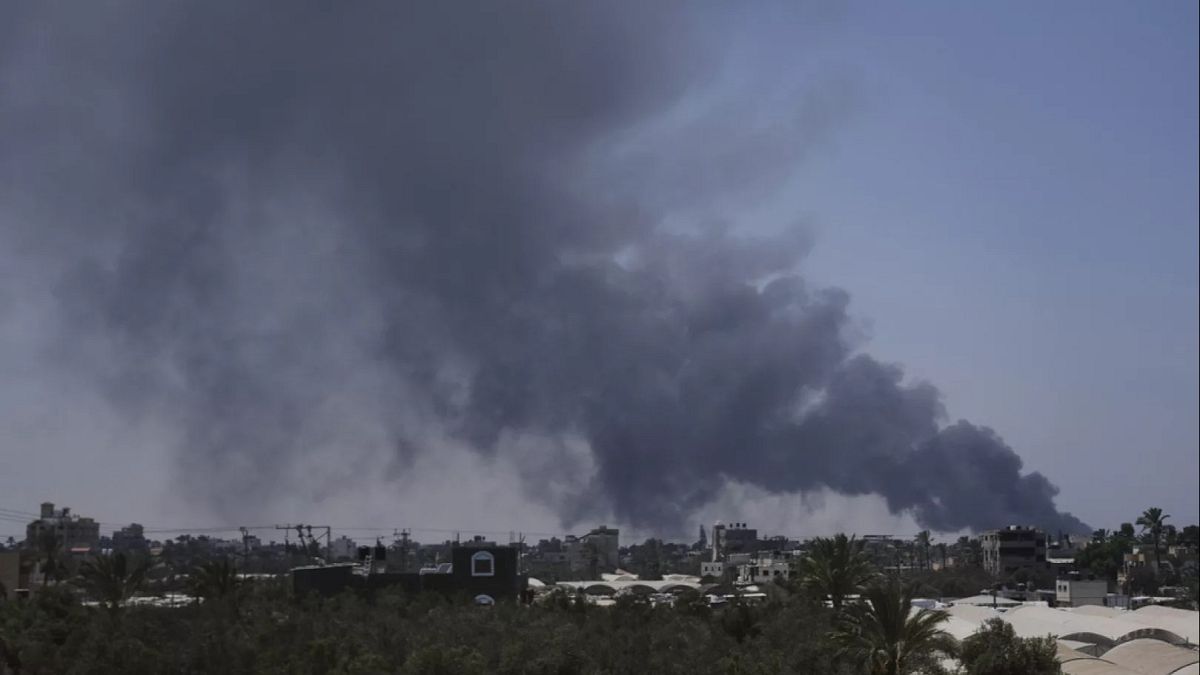

In the intricate tapestry of current global events, tensions span from the Middle East to Eastern Europe and ripple into international diplomacy. Amidst these unfolding narratives, a variety of developments have come to the forefront.
In the Gaza Strip, recent airstrikes have targeted facilities of the World Health Organization (WHO) in Deir al-Balah. These military actions, attributed to Israel, have disrupted vital humanitarian efforts and have drawn condemnation from the international community. The WHO reports that its staff accommodations and primary warehouse were stormed and required the evacuation of women and children. This incident has placed additional strain on the humanitarian landscape in Gaza, already described as ‘hell on earth’ by the United Nations due to dire conditions including starvation and medical personnel working under extreme duress. The situation is compounded by Israel’s revocation of the visa belonging to Jonathan Whittall, a senior UN humanitarian official in Gaza, further complicating relief efforts.
Meanwhile, the geopolitical landscape is further complicated by comments from former U.S. President Donald Trump, who reiterated the possibility of military action against Iran’s nuclear capabilities. This statement comes on the heels of a report from Iran’s foreign minister regarding extensive damage to nuclear sites from previous strikes. Such rhetoric underscores continued tensions over nuclear proliferation in the region and reflects the fragile balance between diplomatic negotiations and military posturing.
In Eastern Europe, Ukraine continues to face challenges as it attempts to mend its internal political fabric while enduring external military pressures. Recently, Ukraine’s security service apprehended members of the National Anti-Corruption Bureau under suspicion of Kremlin links. This arrest highlights the ongoing struggle against corruption within the country and the need to ensure integrity within its agencies to foster trust both domestically and internationally.
Amid this backdrop, Ukraine and Russia have agreed to reconvene for peace talks in Turkey. The upcoming negotiations aim to navigate the hostilities that have intensified, especially with Russia’s recent deployment of 42 drone strikes that injured multiple individuals. Despite the escalation, both nations exhibit a willingness to engage in dialogue, offering a glimmer of possibility for de-escalation and peace.
Concurrently, support for Ukraine from Western allies persists, as evidenced by the agreement between the United States and Germany to supply Ukraine with Patriot air defense systems. Regarded as a premier missile defense solution, the Patriots are expected to bolster Ukraine’s defensive capabilities significantly, providing a layer of protection against incoming threats.
The global community watches closely as these situations evolve, each interconnected in the broader sphere of international relations and conflict resolution. Governments and organizations worldwide are urged to pursue pathways of diplomacy and cooperative action, fostering environments where peace and humanitarian efforts can prosper. As these stories unfold, they serve as a poignant reminder of the complexities of global politics and the enduring hope for resolution and understanding amidst discord.
Source: {link}
